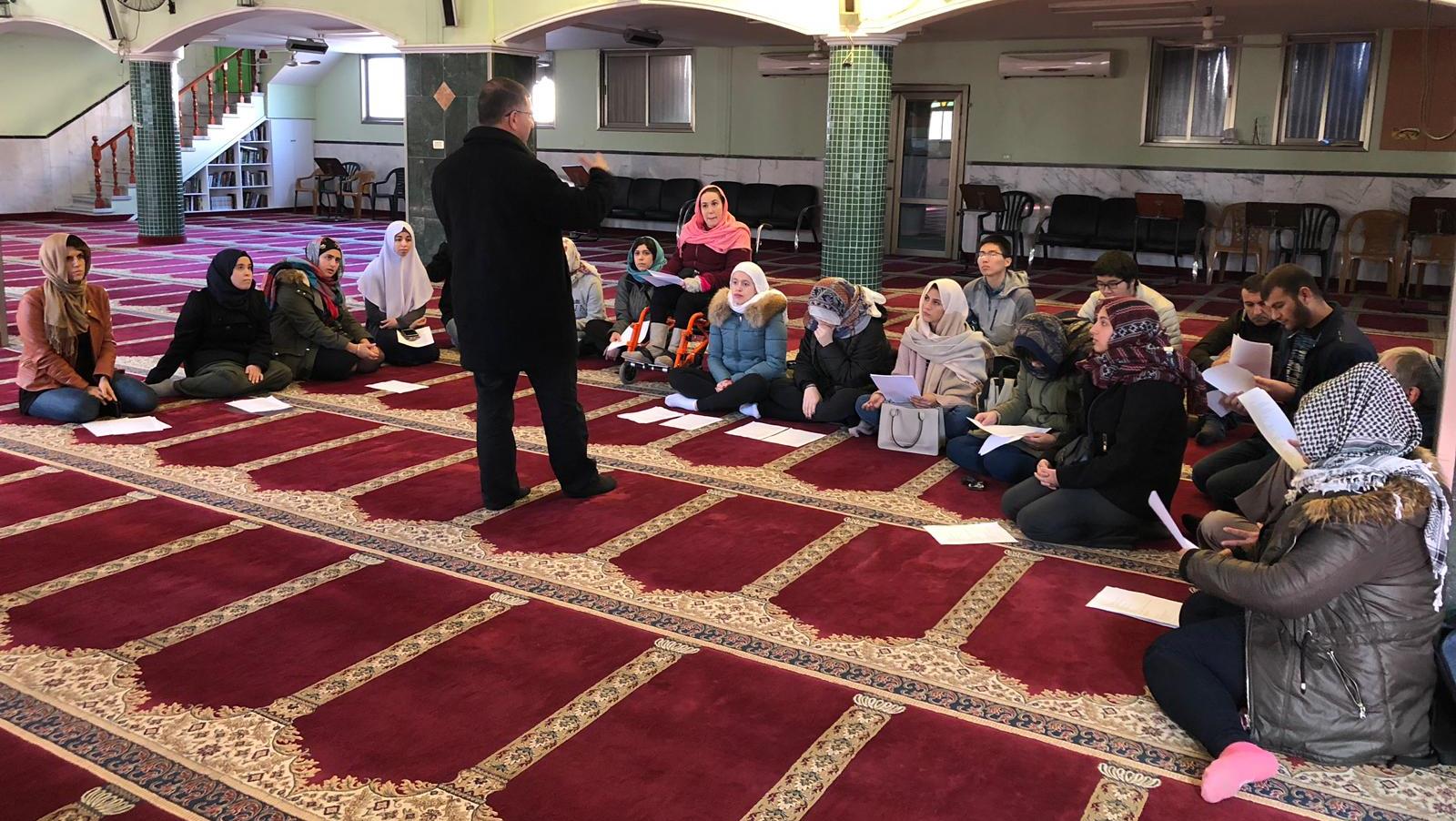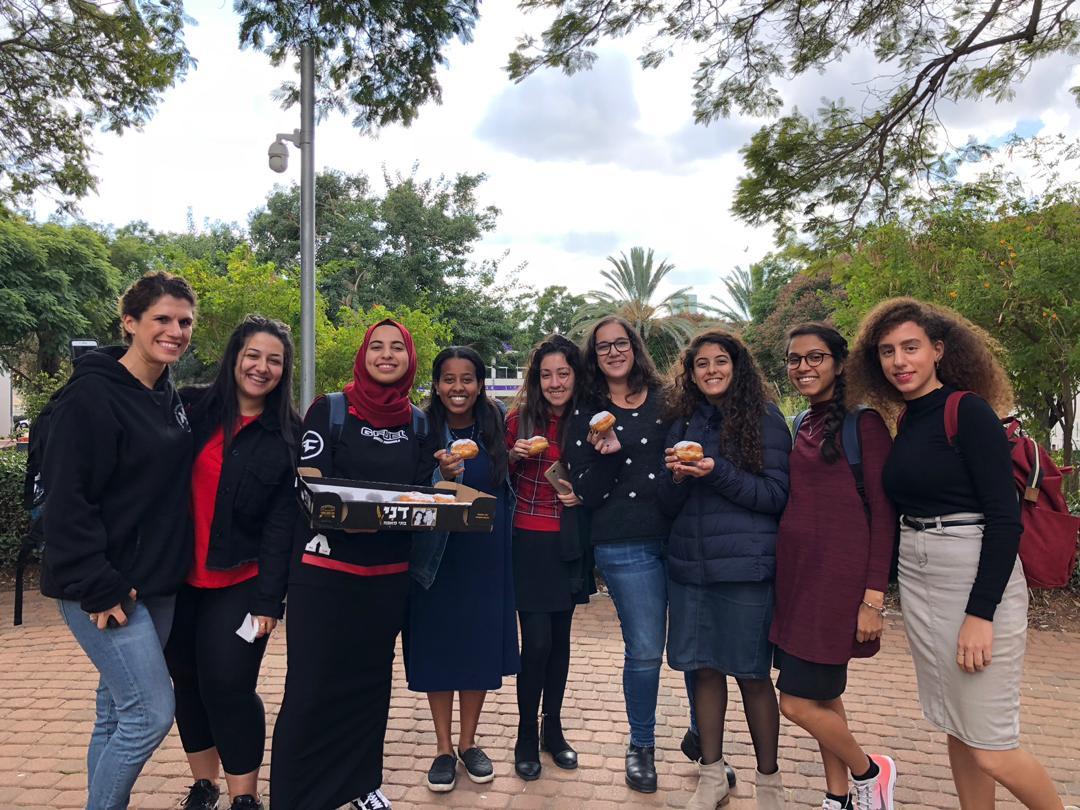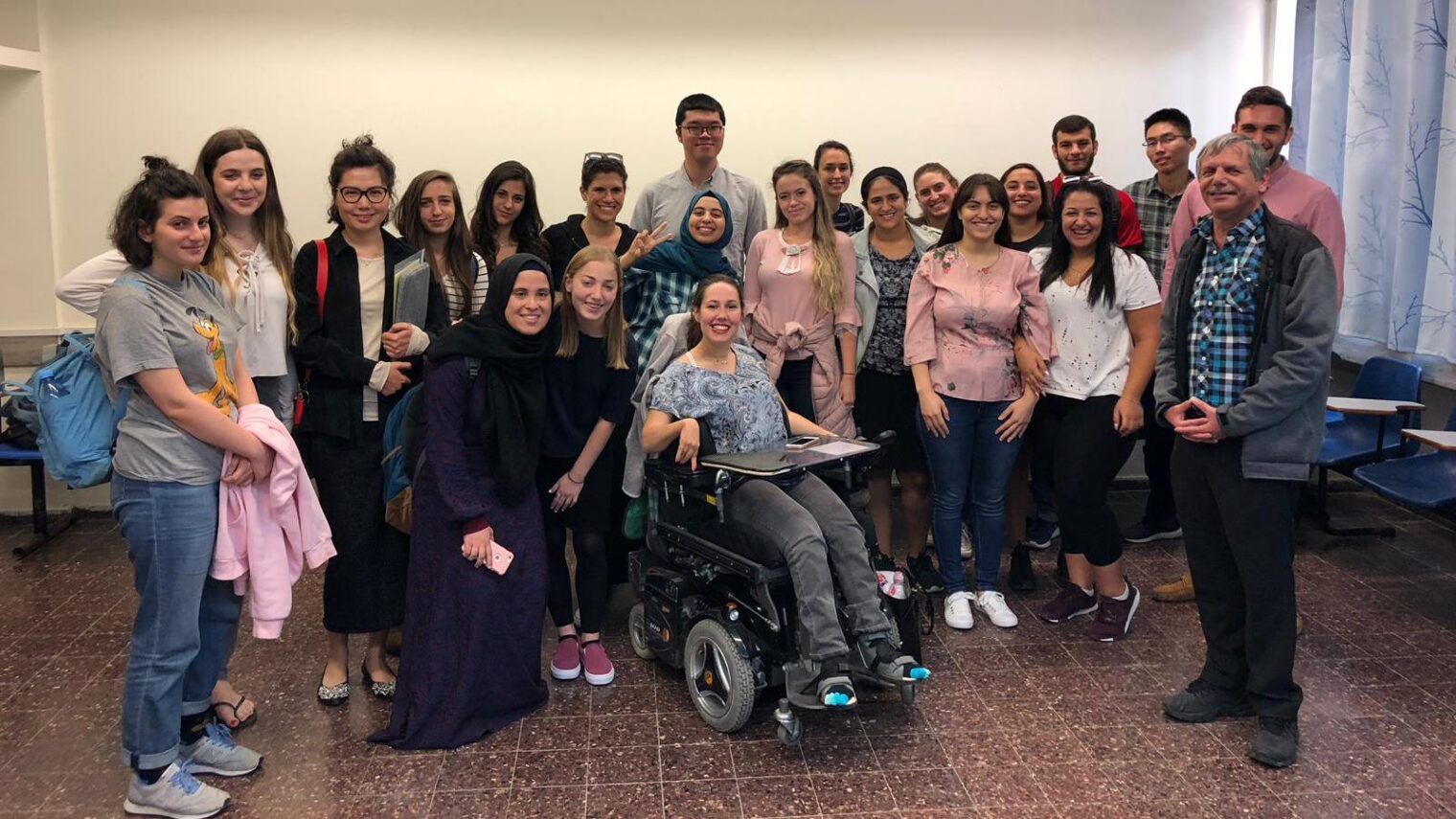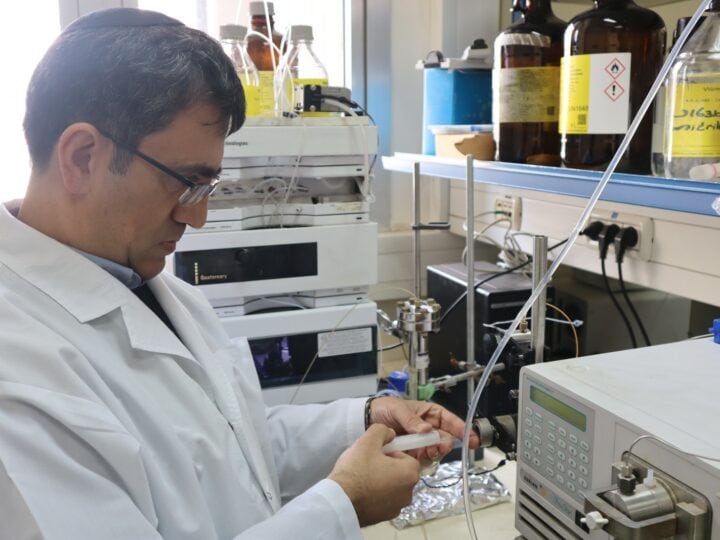A Jew, a Muslim and a Christian walk into a classroom. No, this is not the start of a joke, but a most accurate description of a unique course on interreligious dialogue at Israel’s Bar-Ilan University.
“The class as a whole is meant as an opportunity for Jewish and Arab students at Bar-Ilan University to get an appreciation of each other’s cultures and see the commonalities in religious traditions as a basis for dialogue,” says course lecturer Ben Mollov.
“They’re gaining the personal perspective of each other and that leads to a type of relationship building and relationship transformation.”
Mollov, a lecturer in political science and conflict management at Bar-Ilan, has been involved in Arab-Jewish dialogue from a religious perspective for the past 20-odd years. And while he’s a veteran enthusiast of this sort of dialogue, the current course emerged as an initiative of his students.
One of these students is Sariba Feinstein from the United States, a double major in communications and political science at Bar-Ilan. Introduced to the concept of interreligious dialogue in class last year, she teamed up with friend and classmate Fatima Amer to set up the Bar-Ilan chapter of the Interfaith Encounter Association, a nonprofit that fosters dialogue among religious groups.
What started out as small monthly meetings developed into a highly popular, full-fledged academic course in the university’s international program.
“We had planned to have 20 students in the class to have a more intimate dialogue in the course. In the end the reception was so strong we had to open it to 30, and there was a waiting list after that,” Mollov tells ISRAEL21c.

The pillars of the course, according to Mollov, are mutual respect, self-respect and mutual enrichment.
“I see this effort as something that’s meant to promote better relations between Jews and Arabs as a whole at Bar-Ilan but also having a larger message of what can be achieved when you take this approach,” he says.
The course is mostly centered on student presentations of religious themes such as pilgrimages, prophets, the role of women, and the holiday cycle in Judaism, Islam and Christianity.
“We avoid political issues because we’re taking a different approach entirely,” Mollov says.
However, current events can influence the atmosphere in the classroom. Recounting the recent tensions on the Gaza border, Mollov says that “when outside dramatic events occur, everyone is affected in some way. I started out by saying that we all wish news in our area was better, but this shows it’s all the more important what we’re doing here.”
So many similarities
The students aim to focus on the positive.
“It’s an environment where you get to learn and ask all the questions that you may have otherwise been uncomfortable or scared or not known how to ask,” says Jewish student coordinator Feinstein.
“I think what’s so surprising is how there are so many similarities between the different religions and that’s essentially what the dialogue’s meant to do: discover these similarities.”
Amer, the course’s Arab student coordinator, agrees. The 20-year-old communications and English literature major from Kfar Kassem is studying at the university’s international program, and the English-language course has given her the opportunity to meet and befriend people she wouldn’t have otherwise known.
“For me, I don’t know Hebrew that well, even though I live in Israel. I never had a friend who is Jewish. So I didn’t know much about them,” she recounts. “I now have lots of Jewish friends, and because of this course I know many things about them and about Judaism. This course helped a lot in bringing us together.”

Amer fondly recalls a Hanukkah discussion to which Jewish classmates brought sufganiyot, traditional jelly donuts. “I connected that to Ramadan a little bit. Because Ramadan brings people closer together to each other, and I felt the same thing happens in Hanukkah.”
The Hanukkah celebration was also a highlight for Hiba Jiryis, a 24-year-old Christian Arab English literature student from Kfar Yasif in Israel’s North, who handed out sufganiyot with her Muslim and Jewish classmates on campus.
“My favorite part was that we lit candles, that we had a hanukkiyah [menorah] in class. I also got up and lit a candle. I really felt part of it,” she says.
“I’m very interested in dialogue between Jews and Arabs and all things relating to coexistence,” Jiryis explains. “What’s nice about this course is that everyone accepts one another and asks questions. I believe that this is where change begins,” she adds.
“The fact is, when we go about campus we hug one another, kiss and say hello.”
Arab student population doubled
While Mollov’s course is the only interreligious dialogue one taking place at Bar-Ilan, the university offers other accredited dialogue courses, such as music dialogue, Arab-Jewish dialogue and education for democracy.
These all complement the university’s growing population of Arab students. Over the past decade the Arab student population at Bar Ilan has doubled to 1,450, most of them undergraduates studying fields such as economics, English and accounting.
Mollov hopes his interreligious dialogue course will run again next year, noting the logistics are still being looked into. Judging by his current students’ reactions, it will definitely be worth it.
Asked what they’re taking with them from the course, all three students we spoke to were very optimistic.
“The person [with whom] you think you have the least in common, make a little bit of an effort and you’ll discover that your worlds do collide,” is the major lesson learned by Feinstein.
“I like hearing the other side and getting to know them. Because at the end, you realize both of you are similar,” Amer says.
For Jiryis, it’s all about acceptance. “The thing I’d take with me the most is the acceptance. To take what’s in common,” she concludes.
















